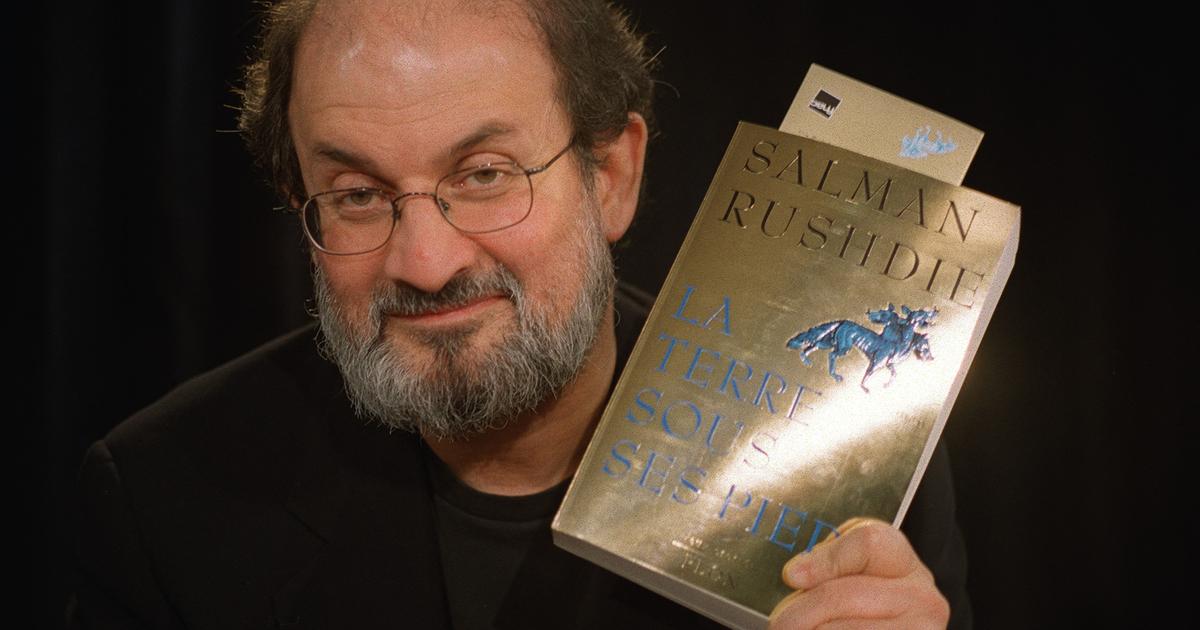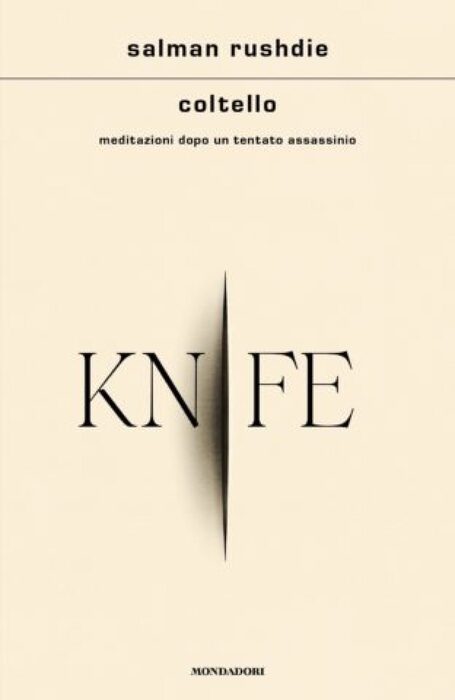It did not come out in Arabic, its rare fragmented translations circulate under the coat in restricted medium:
The satanic verses
could have gone unnoticed in the Arab world without the Iranian fatwa against its author Salman Rushdie.
Because the call for murder launched on February 14, 1989 by Ayatollah Rouhollah Khomeini made Arab writers react, themselves regularly attacked by authoritarian regimes for having opposed them or by their fellow citizens for writings deemed immoral.
When Salman Rushdie's satirical novel was published in 1988, the Arab world was gripped by the end of the Iran-Iraq war, which left one million dead on both sides, and the first Intifada Palestinian.
It is in Great Britain and in the Indian subcontinent - from which Salman Rushdie is native - that the work will attract all the wrath.
There, tens of thousands of demonstrators booed a book which they said "insulted" the Prophet Muhammad.
What shocks English readers, Egyptian writer Ahdaf Soueif, who was living in Britain at the time, told AFP, is
"the trivial vocabulary used to describe the prophet, radically opposite to the your usual reverential”
.
What he wrote in his novel can in no way justify a fatwa making his murder a religious duty.
Lebanese writer Fawwaz Traboulsi,
In the Arab world, on the other hand, nobody talks about the novel.
Al-Azhar, the highest religious authority in Sunni Islam based in Egypt, banned the book with the visibly provocative title in that country.
In fact, the idea of verses inspired by Satan is not unknown to doctors of religion who have seen them pass during their theological studies.
Certain events mentioned in the novel
“are reported in several of the oldest biographies of the prophet”
, adds Ms. Soueif.
But what will ultimately catch the attention of the Arab world is Khomeini's fatwa.
From then on, the affair was no longer just a question of literary opinion or religious feeling, it was also political, and a few days later, some forty intellectuals from Damascus published an open letter entitled
"Defending the right to living from the writer”
.
"We are not here to defend the book but its author, his right to live and also his right to write"
, affirm the signatories, denouncing book burnings and condemnations, sometimes to death, of thinkers since the Middle Ages.
One of them, the Lebanese writer Fawwaz Traboulsi, said it again on Facebook on Sunday:
“What he wrote in his novel can in no way justify a fatwa making his murder a religious duty”
.
Social networks
Already in 1993, when radical Islamists were assassinating thinkers in Algeria, like Tahar Djaout, or in Egypt, like Farag Foda, figures of Arab literature had responded with the pen, like the Palestinians Edward Saïd and Mahmoud Darwich, the Lebanese Amin Maalouf or the Algerian Mohammed Arkoun.
"To an idea, we can only oppose an idea"
, protests the Egyptian writer Naguib Mahfouz, Nobel Prize for Literature in 1988, who will survive an assassination attempt perpetrated in 1994 by two Islamists who will confess to their trial never having read his books.
Echoing Saturday, as the world watched a scene in New York state where a youth stabbed Salman Rushdie, Egyptian author Ezzedine Fishere tweeted:
"It's the assassination attempt of Naguib Mahfouz who is starting over!”
.
Because today, it is indeed on social networks that information and cultural objects circulate, notes the Egyptian intellectual Sayed Mahmoud, just like online fatwas.
After the Arab "revolutions" of 2011, which saw dictators fall, Islamists come to power and now being sidelined for a return to authoritarianism by leaders posing as secular,
"it's much more difficult for a representative of political Islam to find a platform to support the attack on Rushdie,”
he told AFP.
Despite everything, the day after the attack on Rushdie, the Lebanese journalist Redouane Aquil pronounced himself "for the application of the fatwa" while affirming
"not to condone an assassination attempt"
.
And to add:
“if we insulted Christ, I would say the same”
because
“there are limits and taboos”
.
As for the
Satanic Verses
, they are now available in Arabic, but on private Facebook groups or via online links, out of sight.








/cloudfront-eu-central-1.images.arcpublishing.com/prisa/3RK7SFBDLMVU3HOUGG5Q4GMLL4.jpg)